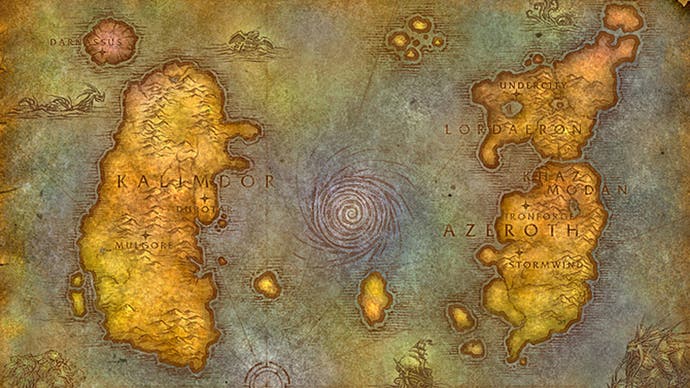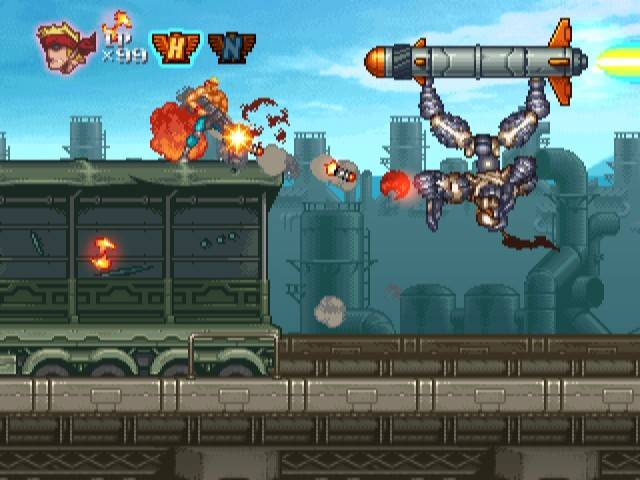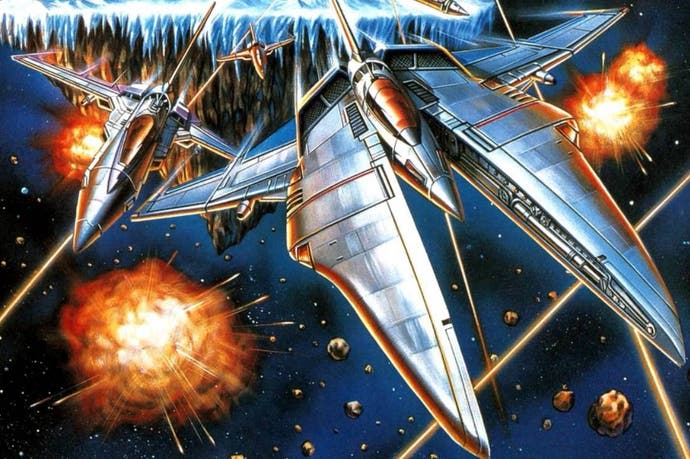Where do downloadable games go when they die?
Exploring the digital graveyard.
A digital-only game based on licensed content is doomed to die right from the outset. At some point, months or years from now, that licensing agreement will expire - at which point the publisher can no longer sell the game. It will be summarily pulled from digital storefronts - sometimes with little or no warning - and is unlikely to ever resurface, unless the publisher is willing to negotiate those licensing deals all over again.
Last December, a slew of Transformers games were suddenly removed from Steam and PSN (and later from the Xbox Marketplace) with no warning from publisher Activision. Among them was Transformers: Devastation by renowned developer PlatinumGames, which had only been released two years previously. Teenage Mutant Ninja Turtles and Marvel titles published by Activision have suffered a similar fate.
Players who have previously bought and downloaded such games can still download them again. But even this exception may not apply forever. The fact is that you do not actually own games that you download. The PSN Terms of Service explicitly state this: "When you purchase a Product you agree that you are purchasing a licence to use that Product and you do not take ownership of the Product." Microsoft and Nintendo have similar terms. By buying a digital game, you are simply buying a license to play it - and the platform holder has the right to revoke that license at any time. If, for example, Sony decided at some far point in the future to delist all of the PS3 titles from PSN, they would be perfectly entitled to do so. I'm not suggesting that they will - they may very well keep the servers open until the end of the time - but there is nothing to stop them from doing so.
Luckily for Transformers and PlatinumGames fans, Devastation was released on disc as well as digitally, so it's still possible to buy the game second hand. But there are plenty of digital-only licensed games that have utterly disappeared in a puff of digital smoke. One of the most notable was OutRun Online Arcade, a well-received Sumo conversion of Sega's classic OutRun 2 that was pulled in 2011, just two years after release, when the publisher's deal with Ferrari expired. Other notable disappearances include Scott Pilgrim vs. The World: The Game, GTI Club+: Rally Côte d'Azur (another Sumo conversion of yet another excellent arcade racing game) and The Simpsons Arcade Game, all delisted once their respective licenses had expired. And then there are the free-to-play versions of popular franchises, like SoulCalibur: Lost Swords and Tekken Revolution, long since lost in the digital ether. All in all, dozens and dozens of digital-only console titles have already disappeared.

I mentioned the hypothetical example above of Sony delisting all of the digital PS3 titles, potentially erasing a generation of games in one fell swoop. But Nintendo is doing this right now, having announced the closure of its WiiWare service. This was the company's first foray into digital-only games in the Wii era, and it is due to close on 31st January 2019. But the ability to add points to the Wii Shop - the only way to buy games from the service - will end much earlier, on 26th March 2018. So unless you have sufficient points added by then, you won't be able to buy anything new from March onwards.
The quality of WiiWare games was notoriously variable, but there are still plenty of important titles that will become unobtainable when the servers are shut down in 2019. The 'Rebirth' series from Konami - Gradius Rebirth, Contra Rebirth and Castlevania Rebirth - will disappear, these unique re-imaginings of classic games lost with the death of WiiWare. Other enjoyable retro restylings, such as Blaster Master Overdrive and Excitebike World Rally, will also disappear. And there are dozens of great original games that are unique to the service, like the Art Style series from the studio behind Chibi-Robo, Bonsai Barber from the lead designer of GoldenEye and Tomena Sanner, a bizarre runner game from Konami. All will soon be lost.
LostWinds by Frontier Developments, makers of Elite Dangerous, was perhaps the poster child of WiiWare, once makes its way onto the cover of Edge. Designed from the ground up to take advantage of the Wii's unique control system, the game was successful enough to spawn a sequel - but in a year it will be impossible to obtain for the system for which it was designed.
Rare NES titles with limited production runs, such as Stadium Events or Bonk's Adventure, can now sell for hundreds if not thousands of dollars. Perhaps in the future, anyone with the foresight to download soon-to-be-delisted digital games from WiiWare could find their Wii console is worth a fortune to collectors, with games like the Club Nintendo WiiWare exclusive Doc Louis' Punch-Out becoming the Stadium Events of the future. Indeed, something like this has already happened in mobile gaming.

Back in 2014, Flappy Bird became a worldwide phenomenon, commanding the top spot on mobile download charts. But all of a sudden its creator, Dong Nguyen, pulled the game from sale, citing guilt over its addictive nature. Overnight, phones with the game installed started changing hands for $10,000 or more - and even today, long after Flappy Bird mania has died down, you can still find Flappy Bird phones going for $2,000 on Amazon.
Although Flappy Bird is perhaps the most high-profile case, games are removed from the iPhone and Android storefronts with alarming regularity, and many older games become unplayable on the latest operating systems. But in terms of preserving games for future generations, it's not just a question of being able to access the games themselves - there's also the problem that the game itself can change.
"Look at games like Angry Birds or Minecraft, for example," says James Newman of the National Videogame Arcade (NVA) in Nottingham. "The ecology of updating and adding content to games after they have been released means that games evolve - often quite dramatically - over their lifespans. Titles have new features added and old features and exploitable bugs removed so they almost become different games when compared with their launch versions. So, the implication of digital distribution isn't just on access, it changes how we approach the idea of the canonical 'game'. Because it appeared to defy so many of our generic definitions of what constituted a videogame, we're used to asking ourselves 'What is Minecraft?' Given how many changes there have been to the game over time and the extent to which they materially affect how the game can be played, perhaps a better question today might be 'When is Minecraft?'"

When it comes to safekeeping digital games for future generations, "we're really only just beginning to grasp the scale of the problem," says James. He notes that various groups are trying out technical solutions, such as emulating games or even building server architectures to reconstruct old games, as the Nexon Computer Museum in South Korea has done for the MMO Kingdom of Winds.
But considering that digital games change so much over time, with content added, tweaked and taken away, perhaps it's impossible to preserve such games in any meaningful way. After all, which version of the game do you preserve? Perhaps it's better to think of video game history in a similar way to the study of history as a whole - as a sequence of documents, interpretations and recollections that capture moments in time, all in the context of the events of the day. James even goes so far as to wonder whether actually being able to play an old game is the most vital aspect of game preservation.
"I wrote a book on game preservation which posed the question as to whether long-term playability was the inevitable goal. That might sound completely counterintuitive and at odds with what video games are - after all, the defining feature of video games is that they are playable. And with that in mind, it's hard not to think that giving people the ability to play a given video game in the future must be the ultimate aim of game preservation. But another way of thinking about it might be to consider how much sense we could make of a game in the future just by playing it. On one level, this might be about removing a game from a social, cultural, political context or the expectations of the time. So, playing Monty Mole outside the context of the miners' strike in the UK in the 1980s gives the game different resonance."
"It's important to think about the journey games take and how their meanings change over time. We need to gather lots of contextual material and documentation to see how the way in which the game is understood changes. Things like oral history projects, where the recollections of designers, players, journalists, etc. are captured, are crucial in this respect, as is gathering reviews, walkthroughs, hints and tips, and so on."
"Consider an online, multiplayer game like World of Warcraft. There are wonderful projects attempting to create something approaching the otherwise unavailable 'vanilla' version, but a lot of what is interesting about WoW has already happened because it's about the talk, the interactions, the virus outbreaks... Reconstructing the game, however faithfully, won't necessarily help us appreciate these qualities and their meanings. To do that, blog posts, articles, websites and video captures of gameplay are all immeasurably useful."
James stresses that the NVA's work in documenting the ways games are played is intended as being complementary rather than an alternative to emulation and preserving playable versions of old games. But as we increasingly head towards digital distribution, where access to a game can be cut off with the flick of a switch, the closest that future generations may get to playing a digital-only title from today could be simply watching a video of the now-lost game or reading about what it was like to play.









